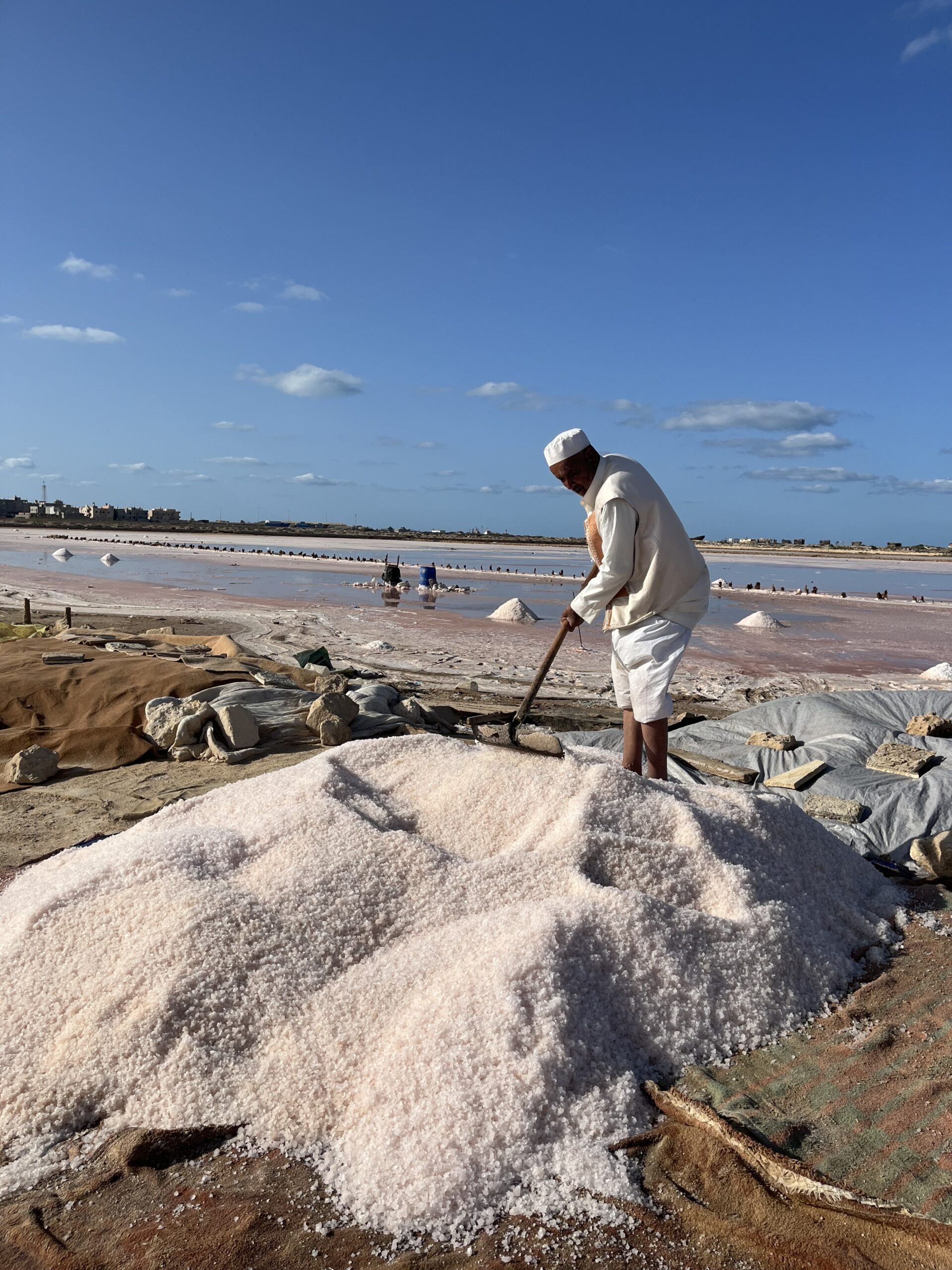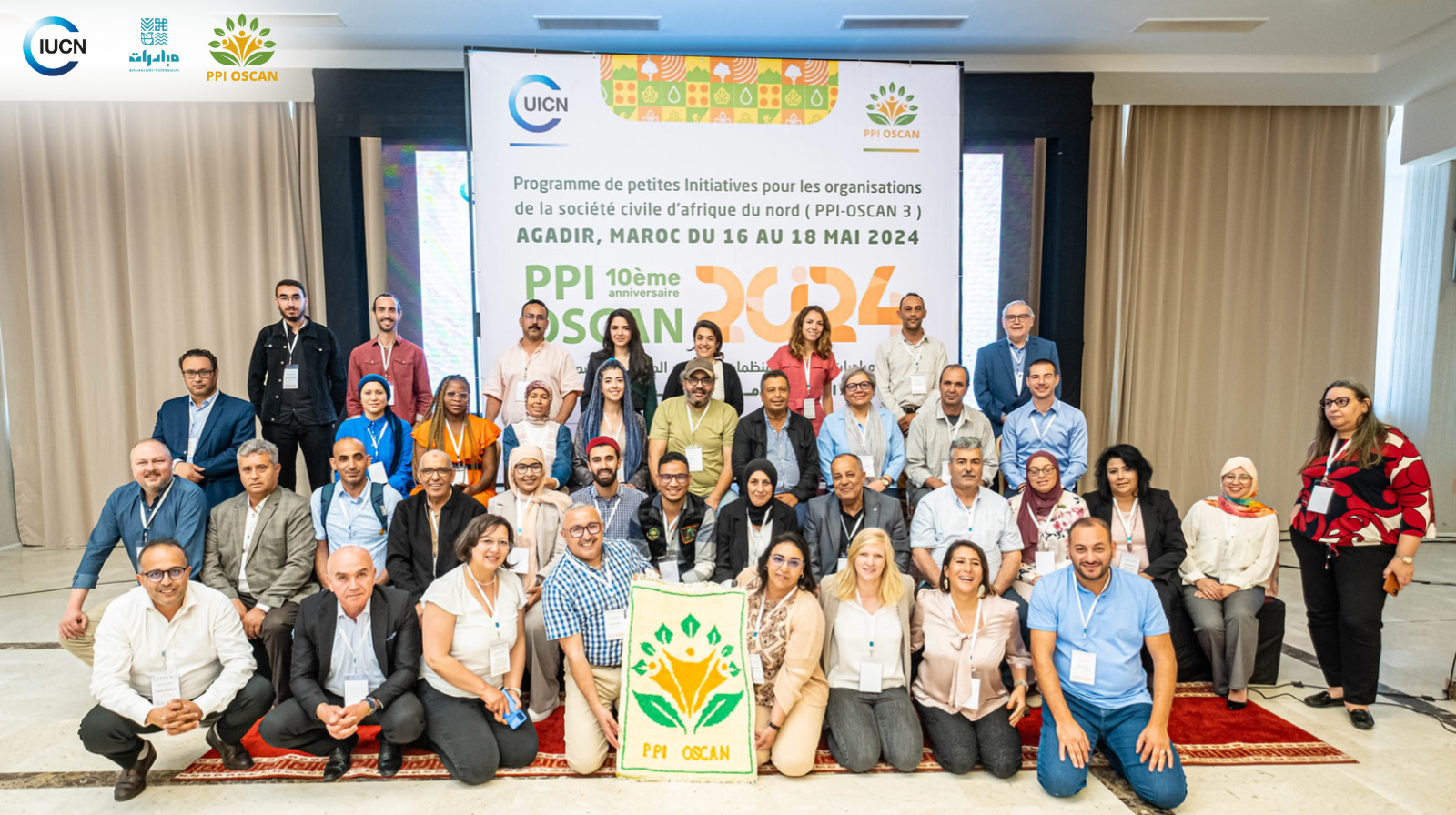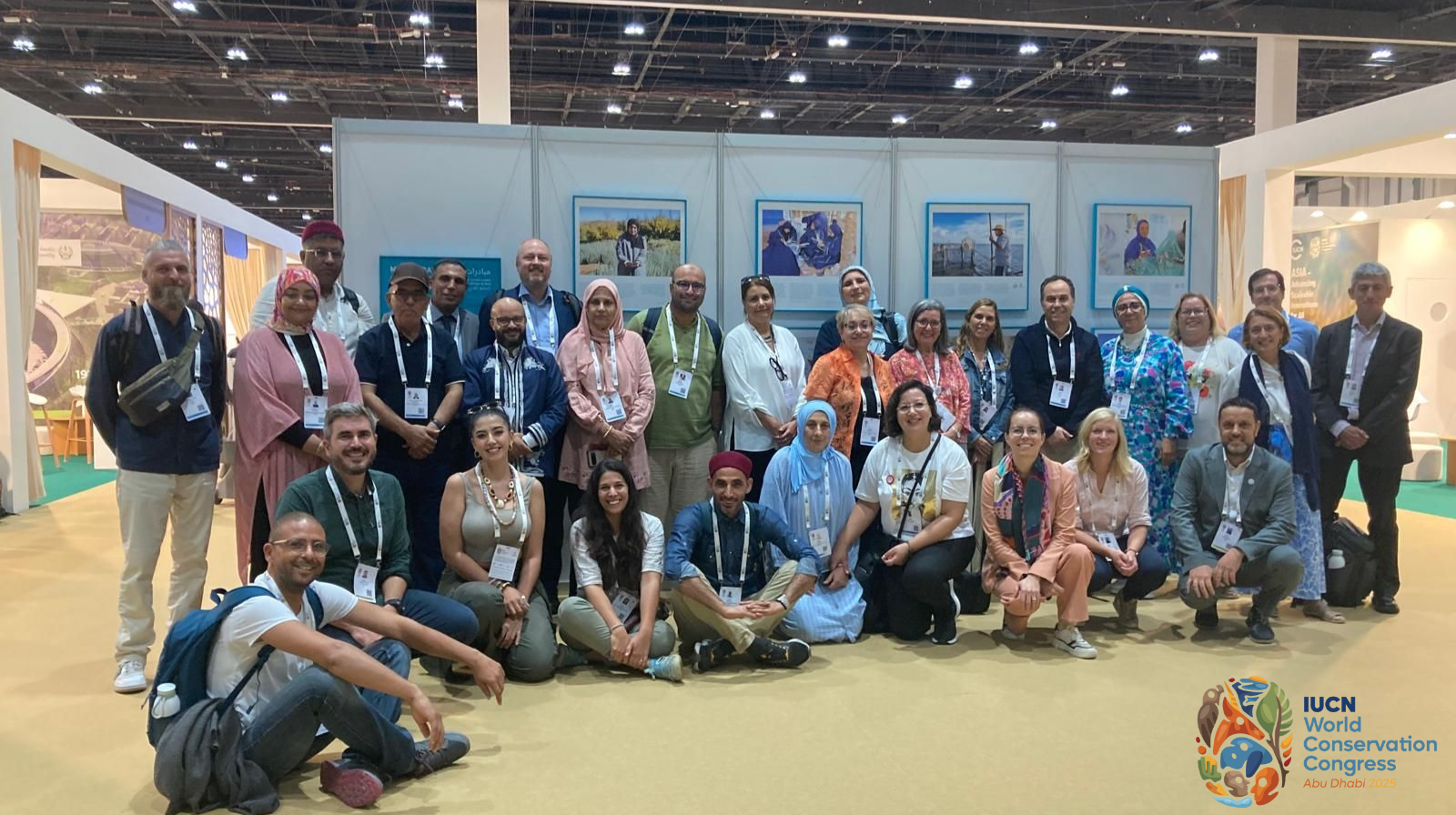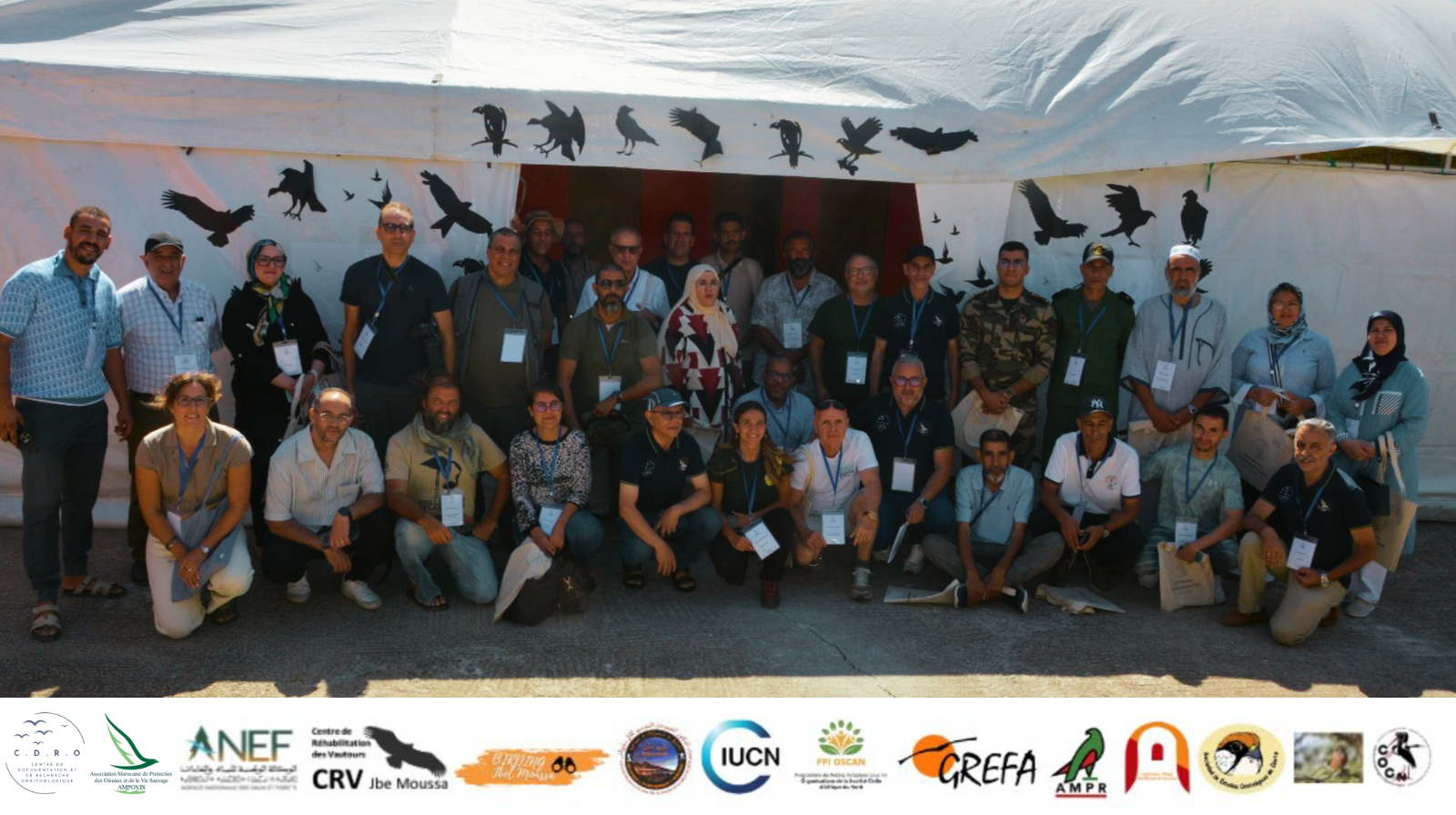When a young association transforms a salt marsh into a protected wetland
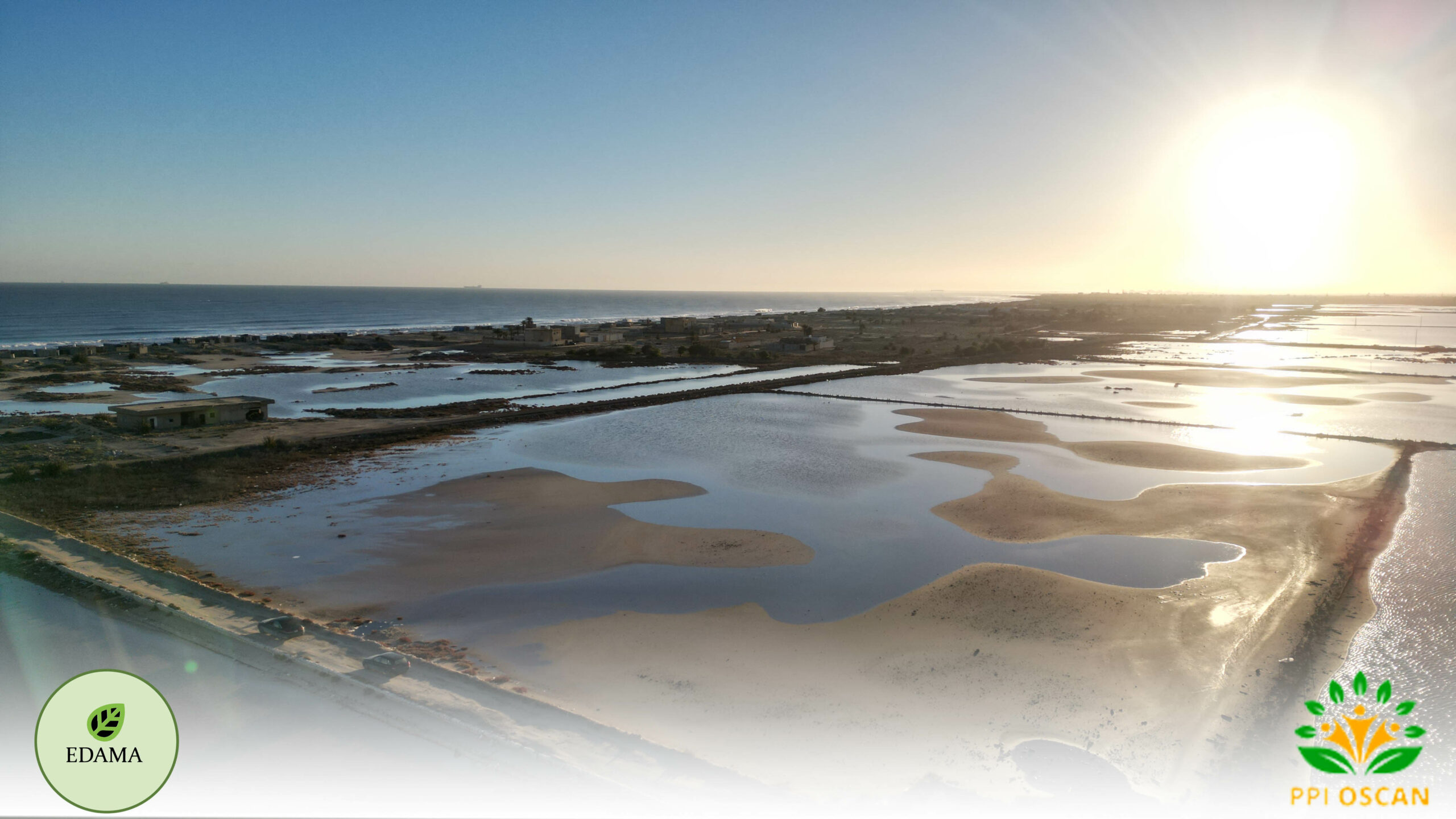
In the north-western corner of Libya, where the salt marshes meet the Mediterranean Sea, a local movement has come up with a bold environmental initiative: the creation of a wetland nature reserve in the Mallahet Zuwara area.
Behind this project is Edama for Nature Conservation, a young Libyan organization, born of the Libyan environmental movement, founded by Libyan men and women convinced that nature protection begins with the involvement of local communities, and a member of the International Union for Conservation of Nature (IUCN) and its Libyan National Committee.
Since its official recognition in 2022 by the Libyan Civil Society Commission and its registration with the Ministry of the Environment, Edama has been working to raise awareness of environmental protection, sustainability and citizen mobilization.
Their field of action: the Zuwara wetland, one of the most precious in the region for migratory birds. A fragile ecosystem threatened by degradation, urbanization and lack of sustainable management. But also a place steeped in memory, culture and potential. With the “Preservation of the Zuwara salt marsh” project as part of the PPI-OSCAN 3 program (coordinated by IUCN-Med and financed by the French Global Environment Facility (FFEM), the MAVA Foundation and the Sigrid Rausing Trust ) Edama’s mission is to preserve this natural wealth. This ambitious project includes the development of an environmental management plan, the restoration of degraded areas, but also – and above all – the empowerment of young people and women through sustainable income-generating activities.
“Our aim is not just to protect nature. We want to create a strong link between local people and their environment, making them actors of change,” explains a member of Edama.”
An area under threat… but rooted in local identity
« ملاحات زوارة ومواردها نظامًا بيئيًا ومصدرًا رئيسيًا للمعيشة للسكان المحليين منذ العصور القديمة، وهي جزء من هويتهم الأمازيغية وتراثهم الثقافي »
“The Zuwara salt marshes and their resources have been an ecosystem and a main source of livelihood for local communities since ancient times. They are deeply rooted in the Amazigh identity and cultural heritage of the region.”
But this area rich in biodiversity – particularly for migratory birds and certain endangered species – was facing numerous challenges: land degradation, waste dumping, anarchic construction, unsustainable exploitation of resources, and the absence of a clear management plan.
A transformative project: ecology, inclusion and recognition
It was against this backdrop that Edama launched its “Preservation of the Zuwara salt marsh” project in 2023, with the support of PPI-OSCAN 3, coordinated by IUCN-Med and funded by the FFEM, the MAVA Foundation and the Sigrid Rausing Trust. The project was completed at the end of 2024, marking a turning point in local environmental governance.
Key components:
- Site demarcation and registration with local authorities.
- Ecological threat assessment and restoration plan.
- Community awareness-raising (workshops, clean-ups, consultations).
- Biodiversity inventory and monitoring of endangered species.
- Support for salt artisans, promoting sustainable practices.
- Reforestation with adapted species.
- And above all, advocacy for official protection of the area.
A historic legislative victory
Thanks to close coordination with the Municipality of Zuwara, the Ministry of the Environment, the Directorate of Nature Conservation and the Research Centre for Terrestrial and Marine Species, Edama was able to gather all the technical and legal elements needed to argue in favour of protected status.
On October 9, 2024, Ministerial Decree no. 749 was published: the Mallahet Zuwara wetland was now an official nature reserve, protected over 110 hectares.
“This decree is a strong legal response to the persistent threats of pollution, illegal construction and unsustainable exploitation,” says the Edama team.
“It also symbolizes recognition of an approach rooted in co-construction with local communities.”A model of success for young Libyans
In addition to creating a reserve, this project has made it possible to :
- Strengthen team capacities (management, communication, monitoring and evaluation).
- Promote participatory governance including young people and women.
- Create a strong link between culture, ecology and sustainable development.
- Offer the area as a learning space for schools, researchers and responsible tourists.
This success shows that a young civil society organization, well supported and deeply rooted in its territory, can bring about systemic change. The Zuwara wetland is now not only protected, but also better understood, valued and loved by its inhabitants.
The project has strengthened the team’s capacities through training in project management, strategic communication, planning, monitoring and evaluation, and knowledge of environmental policies.
The project illustrates the value of collective work and co-construction between civil society, state institutions and local communities for the sustainable management of sensitive areas.

